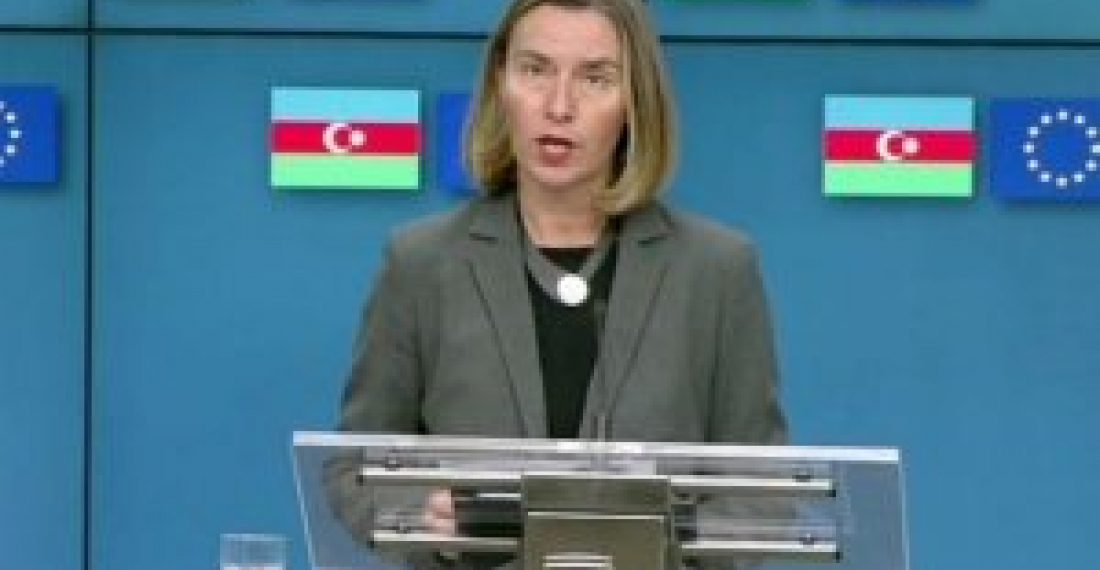"Azerbaijan is an important partner for the European Union, whose independence, sovereignty and territorial integrity the European Union supports fully", This was stated by EU High Representative for Foreign and Security Policy, Federica Morgherini, after a meeting of the EU-Azerbaijan Co-operation Council, which was held in Brussels on Friday (9 February).
Speaking about the negotiations on a comprehensive new agreement between the European Union and Azerbaijan the EU High Representative said that these negotiations can be concluded soon, "to make our partnership more relevant for the times we are living in, the challenges we face and the opportunities we have to take".
Touching on issues of governance, Mrs Morgherini said, "Today we also addressed democracy, rule of law and respect for human rights. This is part of a solid foundation for a mutually beneficial relationship. The European Union has always stressed, as we did again, that the full implementation of international obligations and commitments by Azerbaijan is vital to us. This means taking on board recommendations to bring rules on elections, on freedom of assembly, association and media in line with international standards, especially in a pre-election context that Azerbaijan has entered. The European Union always underlines the importance of respect for human rights and fundamental freedoms. We believe a vibrant civil society is crucial for democracy to exist and progress and we will continue our support in this respect."
Mr Morgherini described the Nagorno-Karabakh conflict, as "a very serious challenge" adding that "the resumption of high-level dialogue in Vienna, St. Petersburg and Geneva is an important development. We would like to see the parties follow up on their agreement to intensify negotiations and reduce tensions on the Line of Contact."
"The status quo, we believe, is unsustainable and the conflict does not have a military solution. It needs political settlement in accordance with international law. The European Union continues to fully support the mediation efforts and proposals of the Organisation for Security and Co-operation in Europe's Minsk Group Co-Chairs, including through our Special Representative, and confidence-building measures", said Mrs Morgherini.
You can read the full text of Mrs Morgherini's comments here
source: commonspace.eu with the press serivce of the European External Action Service
photo: Federica Morgherini speaking in Brussels at the end of the EU-Azerbaijan Co-operation Council on 9 February 2018.






